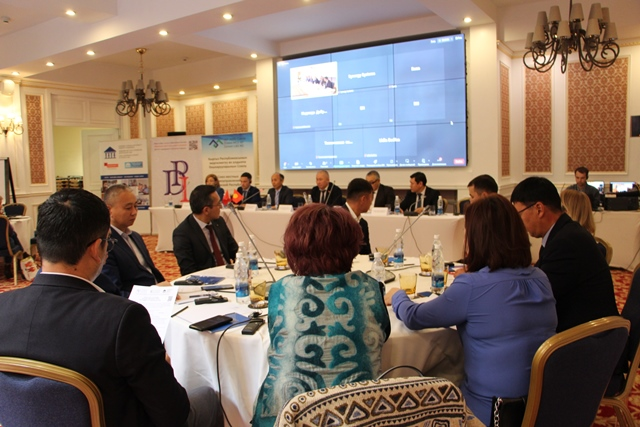Coalition “For the Development of LSG in the Kyrgyz Republic”: “The state and local government will receive more coordinated support in the field of local development”

The coalition was created by the Development Policy Institute, the Union of Local Self-Governments of the Kyrgyz Republic, and the of Local Governance Academy in Central Asia (LGACA) to support reforms in the field of local self-government and local development aimed at improving the living conditions of local communities.
“Local self-government, like the state as a whole, has been faced with several global and regional problems since the early 20s of the millennia such as a pandemic, foreign policy instability, internal contradictions, climate change, the energy crisis, and much more. There is an obvious increase in the expectations of citizens, demanding faster and more coordinated efforts by the authorities to provide people with security, conditions for development, and a decent standard of living. Therefore, the management system needs enhanced support to meet these expectations. The creation of the Coalition was also a response to this need; we can jointly provide more coordinated and effective support to local self-government,” - said Bekturgan OROZBAEV, director of the LSG Union, commented on the need for the Coalition.
The Coalition considers the most important task to be the coordination of the efforts of various parties providing support to local self-government bodies and local communities, and therefore the first public event of the Coalition was the meeting of the Coordination Council, held on September 26 in Bishkek. Discussing the Coalition Program for 2023-2026, the event participants supplemented the main areas of work of partners in the field of local development with current topics, including increasing local budget revenues, improving local development planning and the provision of local services, digital transformation of municipal government and other “hot topics" for local government.
Deputy Director of the State Agency for Civil Service and Local Self-Government under the Cabinet of Ministers of the Kyrgyz Republic Murat BAIDYLDAEV noted that the formal creation of the Coalition and the development of its program became a continuation of the already established and de facto effective system of interaction between non-state partners and government bodies on the development of local self-government: “Over the decades, state bodies authorized for the development of local self-government have been effectively interacting with the Union of Local Self-Government and the Development Policy Institute, as well as other partners. Joint efforts and coordination of work bring more results and save government resources. For example, the State Agency (then GAMSUMO) actively participated in the creation of the Academy of Local Government of Central Asia to solve the problem of the lack of a departmental training center for municipal employees. Now the Academy successfully performs this function, but the state has not spent a single som from the budget”.
Chairperson of the Board of the Development Policy Institute Nadezhda DOBRETSOVA also noted that coordination and joint efforts bring more results: “Together with the Union of Local Self-Government, we help government agencies on many pressing issues in the development of local self-government and local communities. Having officially created the Coalition, we received financial support for the association’s activities from the Swiss Government, which will allow us to increase the effectiveness of this assistance. The Coalition's partners will continue to assist government on issues where this assistance is most important, but the Coalition will support both government (national and local) and civic engagement in the process of improving municipal governance, service delivery, and community development".
Each partner in the Coalition has a unique role, each making a unique contribution following their specialization. Asel KURMANALIEVA, director of LGACA, said that the academy acts as a knowledge management center for local development, knowledge in a broad sense: “The Academy was created to generate and disseminate knowledge and experience in solving local issues, local services, and municipal management. The Academy's efforts will be focused on building a system of departmental advanced training for municipal employees, training heads of local self-government bodies, deputies of local councils, and activists from local communities. In addition to advanced training courses, we have already offered various flexible formats for knowledge management, for example, a peer-to-peer experience exchange platform, a network of consultants for organizing local services, a club of women deputies, and the Municipality magazine. Our services are already used by thousands of representatives of local self-government bodies and local communities, and their number continues to grow”.
The coalition invited the participants of the Coordination Council meeting to jointly identify topics for future meetings, problems, and issues that require the participation of a wide range of parties and active coordination. For example, new legislation in the field of solid waste management, adaptation of local communities to climate change, transformation of support for women taking into account the regional and local context, professionalization of municipal services in the context of administrative and territorial reform, and others. The next meeting of the Coalition Coordination Council will take place in the spring of 2024.

